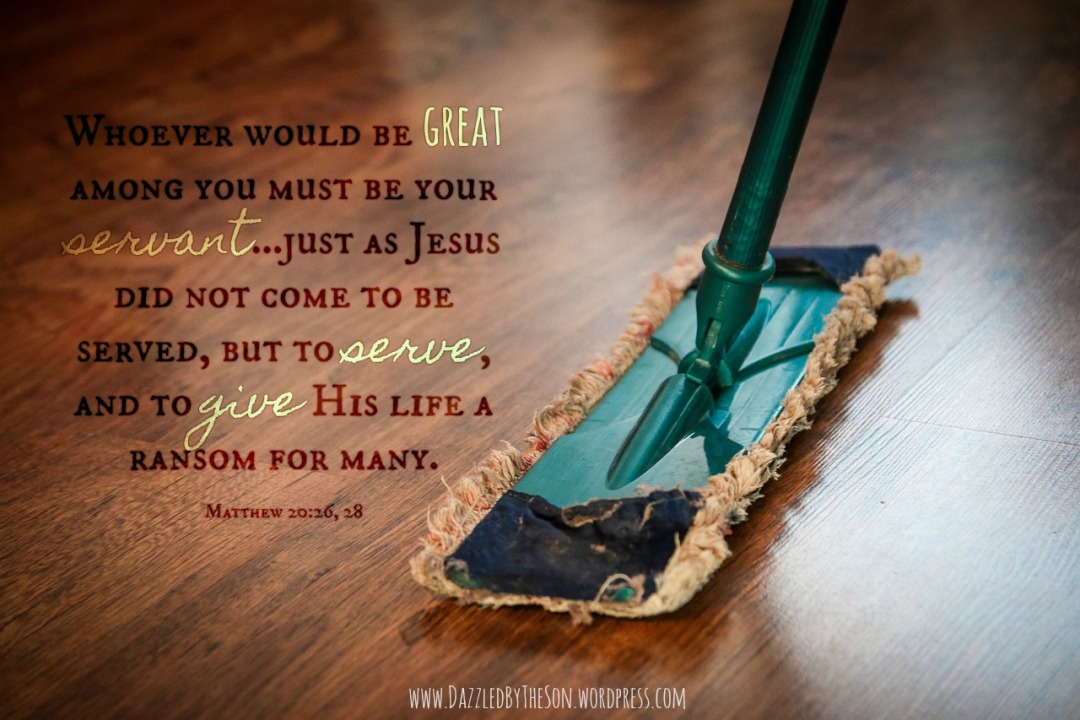
by MeredithNMills | Sep 11, 2018 | abiding in Christ, Family, grace, growing in Christ, Identity in Christ, knowing God, serving, Uncategorized, Victorious Living, Walking by Faith
And just like that, summer is over.
Summer vacation, that is. The heat is forecasted to stick with us for a while yet. The kids are back to their studies and our weekly routine is becoming more…routine.
 I’m not sure what happened to the lazy days of summer, but we didn’t see many of them this year. All three kids swam on our neighborhood swim team and had a blast. A six-times-a-week blast. Then our son started cross country with one, then two, now three practices a week. There were other activities as well, like VBS and STEM camp and playdates.
I’m not sure what happened to the lazy days of summer, but we didn’t see many of them this year. All three kids swam on our neighborhood swim team and had a blast. A six-times-a-week blast. Then our son started cross country with one, then two, now three practices a week. There were other activities as well, like VBS and STEM camp and playdates.
While the kids were busy, I spent a lot of time writing and even tackled a few painting projects. Our summer was definitely full.
But as the school year approached and I went into prep mode for our homeschool and co-op, I realized life was about to get even busier.
Not going to lie – I’ve had a few meltdowns trying to keep up with everything. One night I jolted awake, gasping for breath as I realized I was in the middle of a panic attack. It seemed strange, because I wasn’t mentally worried about anything. Yet the emotional stress of trying to juggle all my responsibilities was taking its toll.
The irony of my current writing project has not escaped my notice. I mean, really. I’m writing a book on soul rest. It seems I may have picked the wrong topic.
Until I remember that I’m writing it because I’m learning it.
Rest is on my heart because God’s teaching me to rest it in the middle of our everyday crazy. Things may not slow down, at least not for long. But Jesus’ invitation to “come rest” remains unchanged in each life season.
Here are a few things He’s teaching me on this crazy, busy road:
- Soul rest takes returning
“Return to your rest, my soul, for the Lord has been good to you” (Psalm 116:7). In the busyness, it’s easy to become unsettled. To grow restless when life feels out of control or when our insides are knotted up for one reason or another.
Living from a heart of rest requires a choice – a conscious decision to cling to faith over feelings, to let God draw us back to Himself as our Source of peace.
The psalmist found rest in remembering God and we can, too. Right in the middle of life’s crazy, without waiting for things to calm down, we must remind our hearts of who God is:
- He is abundantly good, even when life isn’t.
- He responds to my prayers.
- He is gracious, compassionate, and faithful.
- He is infinitely powerful.
- He’ll never call me where His grace won’t sustain me.
- He’s already provided, in Jesus, everything I need to live the life to which He’s called me.
- He loves me unconditionally and welcomes me to come running – freely, boldly, to Him.
- He is, and always will be, for me.
The bottom line, I’m learning, is that soul rest is a walk of faith.
Whether I’m sitting at His feet in prayer or driving my kids to yet another lesson or practice, I can rest fully and freely in my relationship with Jesus. He never changes and His definition of me is constant, too.
When you know you’re relentlessly loved and fully accepted, life gets a whole lot easier.
That is the reality for every follower of Jesus. Will you join me in resting in this truth today?
How do you practice soul rest? I’d love to hear – please comment below to join the conversation! Or click here to join my email group and receive access to all the Bible Study printables in my free resource library.


by MeredithNMills | Jul 25, 2017 | Family, knowing God, serving, Uncategorized, Victorious Living, Walking by Faith

Maaaaaaaama! Can you help me? 
Can you fix this?
Find that?
Look at this?
Open that?
Change this?
Mama, I need you!
If you’re a parent, you get it. You know what it’s like to repeatedly change your agenda because someone needs you. You know the reality of days spent helping.
It’s what we parents do. Because we love, we serve.
Sometimes, though, I feel a little sorry for myself. I look at my insurmountable To-Do List and think, I can’t get any of MY work done! I imagine more glamorous, exciting ways to spend my time.
Some days I just want to be served, instead of serving.
(Side note, my sweet hubby and kids do serve me and love on me – all the time, in fact. I just forget to notice when I’m focused on myself.)
I guess it’s human nature to think of serving as a lesser job. To be the helper is less desirable, less prestigious. Important people have servants. Less important ones are the servants.
But I think we’ve got it backwards, because the Bible often calls God our Helper and portrays Jesus as our Servant.
- “You have been the Helper of the orphan” (Psalm 10:14).
- “God is my Helper; The Lord is the Sustainer of my soul” (Psalm 54:4).
- Jesus “did not come to be served, but to serve, and to give His life a ransom for many” (Matthew 20:28).
- “But the Helper, the Holy Spirit, whom the Father will send in My [Jesus’] name, He will teach you all things and will bring to your remembrance all that I said to you” (John 14:26).
- “We confidently say, ‘The Lord is my Helper, I will not be afraid…’” (Hebrews 13:6).
No one is higher than God Himself, yet during His last moments on earth, Jesus dressed Himself as a servant and washed His followers’ feet. The dirty, dusty feet of every single one of them. Even Judas, whom Jesus knew would betray Him with a traitor’s kiss later that night. Even Peter, who would deny even knowing the Master for whom he swore he’d die.
Jesus did that night what only servants would do.
He spent His whole life doing what servants do. He taught for days on end. He healed the sick. He touched the untouchables. He raised the dead and forgave the penitent. He poured out His life helping those around Him, not because He was inferior, but because they needed Him.
It’s what God has done since the inception of humanity.
 God our Servant. Kinda changes things, doesn’t it? Because God is our Helper:
God our Servant. Kinda changes things, doesn’t it? Because God is our Helper:
- We fill a sacred role when we serve those He’s put in our lives.
- We have an ever-present Helper with whom we can face the dailyness of life, as well as the trials that come our way.
How about you? What difference does it make to know that God is your Helper? In what ways do you need His help today? Please comment below – I’d love to hear! Let’s get to know Him better together!
Related Posts:
Nothing to Prove
Help Wanted
by MeredithNMills | Jan 15, 2016 | confidence, fear, freedom, grace, knowing God, ministry, rest, serving, Uncategorized, Walking by Faith
“Don’t You care that she’s not helping me?”
Martha’s words reflected the turmoil in her soul. With so much to do, how could Mary just sit there? Did she forget about their large dinner party tonight? The food wouldn’t cook itself!

Martha wanted so much for everything to be perfect – the meal, the accommodations, the service. It wasn’t everyday that Jesus came to visit! She had to make sure He was comfortable during His stay. He needed to feel honored, to know how much she loved Him. But…how could she do it all alone?
“Don’t You care that she’s left me to do all the work? Tell her to get up and get busy!”*
Do you ever feel like Martha? I know I do. All the time. Hubby jokes about my impossible “to do” lists. But it’s true. I seem incapable of creating a “to do” list that’s actually doable.

Oh, I totally get Martha. I know what it’s like to feel resentful when my priorities are not a priority to others.
So when I came across this passage in my Bible reading last week, I spent a while reflecting on it. Where did Martha go wrong? What is life’s one true necessity that Mary chose? And seriously, did Jesus not care about dinner? I mean, just practically speaking, how was dinner going to get on the table if both Mary and Martha sat at His feet?
What strikes me most in this account is the tenderness that exudes from Jesus’ gentle rebuke.
“Martha, Martha…My dearly loved Martha! I do see your hard work! I know you want to honor me and prove your devotion. But, Martha, that’s not what I want from you! You’re so distracted, so anxious, so uptight. You’re trying so hard all the time. Trying to take care of everyone. Trying to stay on top of things. Trying to do the right thing.
“I want you to quit trying and just come rest.

“Just be near Me. Listen to My heart. That’s what Mary has chosen. I won’t send her away to get busy.”*
The key difference, it seems, between the two sisters is this – Martha was driven to serve, while Mary drew near in love. Her adoration compelled her to just be close. To hang on His every word. To listen to His heart. To know Him deeply.
And Jesus said nothing in the world matters more.
His call to know Him and be near Him is woven through all the pages of Scripture.
“Cease striving and know that I am God…” (Ps 46:10a).
“Everything else is worthless when compared with the infinite value of knowing Christ Jesus my Lord…” (Phil 3:8).
“Oh, that we might now the Lord! Let us press on to know Him…” (Hos 6:3a).
“But as for me, the nearness of God is my good…” (Ps 73:28a).
“Let us draw near with confidence to the throne of grace…” (Heb 4:16a).
“Draw near to God and He will draw near to you…” (Jas 4:8).
Boil it all down, and we find this at the heart of Christianity – being near God. It’s expressed in many different ways…Abiding in Him. Drawing near to Him. Learning from Him. Loving Him. Fixing our eyes on Him. But it all comes back to intimate nearness with God. Everything else in life flows out of that.
This nearness is certainly cultivated in quiet alone times with Him. But thankfully, for this mama with littles (who finds “quiet time” a bit elusive), I’m learning it can also be cultivated in the noise and activity of life. In my busy “Martha moments,” when dinner truly must get on the table, I can still have the heart of Mary as I rest in my relationship with Him. Serving my family (and anything else I do) can be an overflow of my walk with Him. As I receive and rest in His love, I can freely give it to those around me.
So whatever our season, however busy our days, let us press on to know Him!
How do you cultivate the nearness of God in your daily life?
*This is my paraphrase. 🙂 You can read the whole story in Luke 10:38-42.
by MeredithNMills | Apr 24, 2015 | ministry, serving, Uncategorized
She washed my feet that day.
It was hot and dusty in Ensenada, Mexico. So many things were different from what I knew – outdoor bathrooms, eating in the open air, houses with just two rooms in them, little stores in people’s homes… A completely new culture. And I loved it. I fell in love there…with fish tacos. And, more importantly, with the Mexican people. So beautiful. So generous. So kind.

We had just returned from a neighborhood outreach where we hosted a game of “football” (or “soccer,” as we Americans call it.) My sandaled feet were dusty and dirty from walking on the unpaved roads, so I sat down on a retaining wall next to a water spigot to wash them.

A Mexican woman, my sister in Christ, watched as I tried to balance on the wall while scrubbing my feet. Then suddenly, she walked over and knelt beside me. She took my dirty feet in her hands and began to wash them for me.

I was speechless. How do you thank someone who just showed you Jesus in such a vivid way?
That memory is forever etched in my heart and mind. I don’t even know her name. But she was Jesus to me that day. And someday I will meet her again. We will talk uninhibited by language barriers about the Servant Master we both love.
This memory came to mind recently as I read from John 13 with my kids. Jesus, Creator of the universe, Most High God and King of Kings, knelt before His followers and served them. He did the lowest of jobs, a job reserved for servants, when He washed their stinky feet. It was a picture of His love for them. And an example for them (and us) to follow.
But I’ve always wondered why the Bible includes verse three – “Jesus knew that the Father had put all things under His power, and that He had come from God and was returning to God.” Apparently, this was the basis of His service. What significance did this knowledge have for Jesus? Philippians 2:6-7 gives an interesting parallel. Jesus, “although He existed in the form of God, did not regard equality with God a thing to be grasped, but emptied Himself, taking the form of a bond-slave…”
The man Jesus was totally secure in His identity. The Father knew Him and had given Him authority over all things. That was enough for Jesus. He didn’t have to prove that, to grasp that equality. It’s who He is, regardless of whether people recognized Him or not. Because He didn’t live for the approval of man, He was able to empty Himself and serve.
And that can be true of us as well. A few verses earlier in Phillipians 2, we are told to “do nothing from selfishness or empty conceit, but with humility of mind regard one another as more important than yourselves” (v. 3). It’s not that we are less important than others. We are all made in the image of God. But we don’t have to prove our worth, because God knows us and has given us our identity.
As God’s child, I am chosen and greatly loved. I have been made holy and blameless through the blood of Christ. I was adopted because He wanted me. He has freely, lavishly, bestowed grace upon me and has given me every spiritual blessing. I am redeemed and forgiven. His intentions toward me, His child, are kind. I have been given an eternal inheritance and have received the Holy Spirit to seal and guarantee that inheritance. His surpassingly great power is for me. (See Eph 1.) In Christ who loves me, I overwhelmingly conquer (Rom 8:37). Direct, bold access has been granted to the throne room of the Almighty (Heb 4:16). He has personally drawn me near (Eph 2:13). I am firmly rooted and complete in Christ (Col 2:7,10). I am a new creation (2 Cor 5:17), God’s masterpiece (Eph 2:10). And nothing, absolutely nothing, can ever separate me from the steadfast love of my Jesus (Rom 8:38).
That is just a taste of my identity as a follower of Jesus. Is it yours? If you know Jesus, it is your identity as well. Nothing can change that – not our sin, not the opinion of others. Our Creator defines us and has blessed us beyond measure.
If God knows us, and says this is who we are, we have no need to “grasp equality” with those around us. We have nothing to prove. So like Jesus, we can freely serve those God puts in our lives. The indwelling Spirit of Jesus will direct and empower us as He lives His life through us.
When has someone been Jesus to you?

 I’m not sure what happened to the lazy days of summer, but we didn’t see many of them this year. All three kids swam on our neighborhood swim team and had a blast. A six-times-a-week blast. Then our son started cross country with one, then two, now three practices a week. There were other activities as well, like VBS and STEM camp and playdates.
I’m not sure what happened to the lazy days of summer, but we didn’t see many of them this year. All three kids swam on our neighborhood swim team and had a blast. A six-times-a-week blast. Then our son started cross country with one, then two, now three practices a week. There were other activities as well, like VBS and STEM camp and playdates.



 God our Servant. Kinda changes things, doesn’t it? Because God is our Helper:
God our Servant. Kinda changes things, doesn’t it? Because God is our Helper: 




